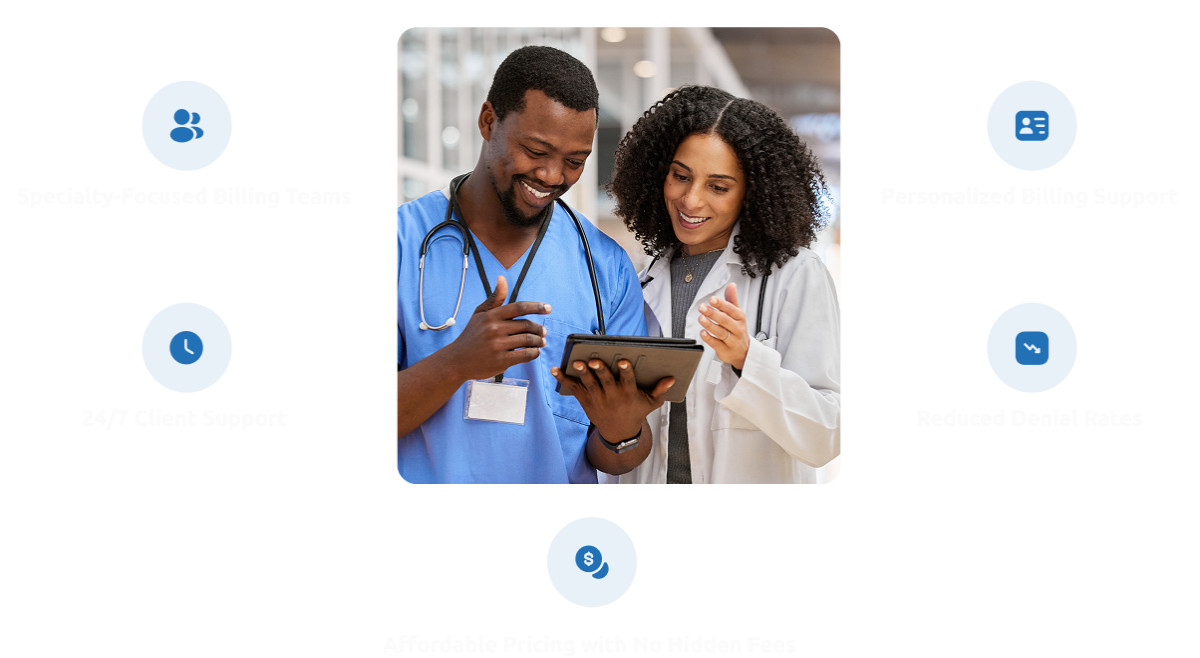
So you've decided to learn to code and break into tech but you're faced with another big decision: should you join an online coding bootcamp or pack up and head to a physical classroom?
It's like choosing between Netflix and the movie theater—both get the job done, but the experience is completely different.
There's no universally "right" answer which means you actually have to think about what works best for your life, learning style, and goals.
Don't worry though, this article will break down everything you need to know to make this choice with confidence.
What Makes Online Bootcamps Work
Freedom to Learn on Your Terms You know that sweet spot in your day when your brain actually works? Maybe it's 6 AM with your first cup of coffee, or maybe it's 11 PM when the world finally shuts up. Online bootcamps let you hit that zone consistently instead of forcing you into someone else's schedule.
This isn't just about convenience—it's about optimization. When you can learn when your brain is actually receptive, you absorb information faster and retain it better. Revolutionary concept, right?
Your Wallet Will Thank You Let's talk money because pretending cost doesn't matter is ridiculous. Online programs typically run 20-40% cheaper than on-site alternatives. But the real savings come from all the stuff you don't have to spend money on: gas, parking, overpriced campus food, and that "professional wardrobe" you'll never wear again after graduation.
Technology That Doesn't Suck Remember those awful online classes from a few years ago with pixelated video and audio that sounded like it was coming through a tin can? Yeah, we've moved way past that. Modern online bootcamps use platforms that let you code collaboratively in real-time, share screens seamlessly, and actually communicate without wanting to throw your computer out the window.
Access Without Borders Living in a place where the nearest quality coding bootcamp is a three-hour drive away? Online education just made geography irrelevant. You can learn from top instructors regardless of where you happen to be parked on this planet.
Where Online Learning Falls Short
Online learning requires discipline that not everyone has. Your home is full of distractions—Netflix, your bed, that pile of laundry giving you judgmental looks. Some people need external structure to function, and there's nothing wrong with that.
Also, networking happens differently online. Sure, you can connect with classmates through Slack and Discord, but you're not grabbing coffee after class or forming those spontaneous study groups that often lead to job referrals.
The Traditional Classroom: Old School With Good Reason
On-site bootcamps haven't disappeared despite the online boom, and that's not just because people are resistant to change. Physical classrooms offer specific advantages that are hard to replicate digitally.
Why Showing Up Still Matters
Instant Gratification Problem Solving When you're stuck on a bug and your code looks like hieroglyphics, being able to immediately turn to your neighbor or wave down an instructor is invaluable. No waiting for responses in chat channels, no trying to explain your problem through screenshots—just real-time human interaction solving real problems.
Networking on Easy Mode Career changes aren't just about skills—they're about connections. On-site bootcamps put you in the same room with other career changers, industry professionals, and potential future colleagues. These relationships often matter more than your portfolio when it comes to landing that first job.
The opportunities in Nigeria's growing tech sector often come through who you know, not just what you know. Physical proximity makes these connections happen naturally.
Structure for the Structure-Needy Some brains work better with external organization. If you're someone who needs deadlines imposed on you rather than self-imposed, who thrives on routine, and who gets more done when other people are around also getting stuff done, on-site programs provide that framework.
Group Energy is Real There's something energizing about being around other people who are struggling with the same problems you are. The collective "aha!" moments, the group debugging sessions, the shared experience of slowly becoming developers—it creates momentum that's hard to generate sitting alone at your computer.
The Downsides Nobody Talks About
On-site learning isn't all whiteboard collaboration and networking magic. You're locked into someone else's schedule whether it works for your life or not. You're spending time and money getting to and from class. And if the instructor's teaching style doesn't click with how you learn, you're stuck for the duration of the program.
Your Brain on Code: Matching Format to Function
Here's something crucial that gets overlooked: how your specific brain likes to process information should heavily influence this decision.
Self-Starters vs. Structure-Needers
Some people are natural self-managers. They set goals, create schedules, and stick to them without external pressure. These people often thrive in online environments where they can optimize their learning experience.
Others need external accountability. They're the people who buy gym memberships but only actually work out when they book sessions with a trainer. If this sounds like you, don't fight it—embrace it and choose on-site learning.
Introverts vs. Extroverts (But Not How You Think)
This isn't about being shy or outgoing. It's about how you process information and recharge. Some people think better when they can retreat to a quiet space and work through problems internally. Others need to talk through ideas and get energy from interaction.
Neither approach is better, but they require different environments to flourish.
Independent vs. Collaborative Processors
Some people need to bash their head against a problem alone before asking for help. Others immediately want to bounce ideas off someone else. Both approaches can lead to excellent developers, but they'll have very different experiences in online versus on-site programs.
The Financial Reality Check
Money talks, so let's listen. The cost difference between online and on-site programs isn't just about tuition numbers on websites.
Hidden Costs of Online Learning
Online programs seem cheaper until you factor in the infrastructure you need. Reliable internet isn't optional—it's critical. You'll need a decent computer setup, possibly multiple monitors, and a workspace that doesn't make you want to cry after eight hours of staring at code.
Don't forget the opportunity costs either. While online programs offer more flexibility, some people actually get distracted by that flexibility and take longer to complete their programs or need additional resources to stay on track.
Hidden Costs of On-Site Learning
Traditional programs come with sneaky expenses. Daily commuting adds up quickly. Buying lunch instead of packing it every day hits your wallet. And let's not even talk about parking fees in major cities.
There's also the time cost. On-site programs are less flexible, which might mean you can't work part-time or have to arrange extensive childcare.
Want to explore professional training options in Nigeria? Understanding the total financial commitment helps avoid nasty surprises halfway through you
Success Rates: What the Numbers Actually Say
Which format gives you better odds of landing a job?
The answer might surprise you: when comparing high-quality programs, the completion rates and job placement statistics are remarkably similar. The format matters way less than the program quality and your personal effort.
Different Skills, Same Destination
Where online and on-site graduates really differ is in their skill development patterns:
Online graduates typically excel at:
- Independent problem-solving
- Remote communication and collaboration
- Self-directed learning
- Written documentation
- Adaptability to new tools and platforms
On-site graduates often develop stronger:
- Verbal communication skills
- In-person collaboration abilities
- Professional networking
- Real-time problem-solving under pressure
- Presentation and client interaction skills
Both skill sets are valuable, but they might align differently with your career goals and the type of roles you want to pursue.
The Hybrid Revolution: Why Choose?
Smart bootcamps are realizing that the online-versus-on-site debate is kind of silly. Why not combine the best of both? Hybrid programs are popping up everywhere, offering:
- Online coursework with periodic in-person intensives
- Virtual instruction with local study groups and meetups
- Flexible attendance options based on weekly schedules
- Remote learning with assigned local mentors
These approaches address most concerns about both pure online and pure on-site programs, though they're not available everywhere and typically cost more.
Decision Time: A Framework That Actually Works
Forget pros and cons lists. Here's a better way to think about this decision:
Identify Your Biggest Constraint
What's the one factor that would absolutely kill your bootcamp plans?
- Scheduling inflexibility → Go online
- No local quality programs → Go online
- Need external accountability → Go on-site
- Learn best through discussion → Go on-site
- Tight budget → Probably go online
Your biggest limitation often makes this decision for you.
Consider Your Success History
Think about when you've successfully learned difficult things in the past. Was it in structured classroom environments? Through self-directed online courses? In study groups? Your past success patterns are strong predictors of future performance.
Match Format to Career Goals
Planning to work remotely? Online bootcamps provide excellent preparation for distributed team collaboration and remote work skills.
Targeting local companies? On-site programs often have better connections with regional employers and understanding of local market needs.
Startup ambitions? The networking advantages of on-site programs can be crucial for finding co-founders or early team members.
Corporate career path? Both formats prepare you well, though on-site programs might give you an edge in interview and presentation skills.
Maximizing Your Chances of Success
Regardless of which format you choose, certain strategies dramatically improve your odds of completing the program and landing a job afterward.
Pre-Bootcamp Preparation
Get Technically Ready: Don't show up on day one never having seen a line of code. Complete some free online tutorials, get comfortable with basic programming concepts, and practice typing without looking at the keyboard. This isn't about becoming an expert—it's about reducing the initial overwhelm.
Prepare Your Mindset: Coding bootcamps are intense. You'll be confused most of the time, you'll feel stupid regularly, and you'll want to quit at least once. This is normal. Developing comfort with being uncomfortable is crucial for success.
Handle the Logistics: Figure out your finances for the entire program duration, not just tuition. Arrange support for household responsibilities. Create your learning environment. Build your support network.
During the Program
For Online Students: Treat your bootcamp like a job with consistent daily schedules. Actively participate in virtual discussions and events. Form study groups with classmates—yes, even online ones work. Take advantage of recorded lectures for review, but don't use them as a crutch to skip live sessions.
For On-Site Students: Show up early and stay late when possible for maximum instructor access. Participate actively in classroom discussions—your questions help everyone learn. Form genuine relationships with classmates beyond just academic collaboration. Use career services and attend networking events even if networking feels awkward.
The Uncomfortable Truth About This Decision
Here's what nobody wants to tell you: both online and on-site bootcamps can successfully launch tech careers, and both have produced failures too. The format you choose is way less important than choosing a high-quality program and showing up consistently with effort and dedication.
You're probably overthinking this decision because it feels like it determines your entire future. It doesn't. What matters is starting, staying committed, and adapting as you learn what works for your specific situation.
Choose Online If You:
- Need maximum scheduling flexibility for work, family, or other commitments
- Are comfortable with self-directed learning and have successfully completed online courses before
- Want to minimize costs and time investment
- Live far from quality on-site programs
- Plan to work remotely or with distributed teams
- Have a quiet, dedicated space for learning and strong internet connection
Choose On-Site If You:
- Thrive with external structure and have historically struggled with self-directed learning
- Learn best through real-time interaction and discussion
- Consider networking and relationship-building high priorities
- Want immediate feedback and support when you're stuck
- Can commit to a fixed schedule and location
- Have reliable transportation and can handle the associated costs
Stop Overthinking and Start Coding
The analysis paralysis is real, isn't it? You've probably read a dozen articles like this one, asked opinions from everyone you know, and maybe even started and abandoned a few free online courses while you "figure things out."
Here's your reality check: the best bootcamp is the one you actually complete. The best format is the one that matches your life circumstances and learning preferences well enough that you'll show up consistently and put in the work.
The tech industry doesn't care whether you learned online or in a classroom. It cares whether you can solve problems, write clean code, and work effectively with others. Both formats can get you there.
Conclusion
Your coding journey starts with a single decision followed by consistent action. The format you choose matters less than your commitment to seeing it through. So pick one—online or on-site—and get started. The tech world is waiting, and honestly, we could use your fresh perspective and unique background.
The only mistake you can make at this point is continuing to research instead of taking action. Choose your path, commit to it, and start building the career you actually want.
Ready to dive deeper into your tech career journey? Explore our comprehensive training programs designed specifically for the Nigerian market. Whether you're interested in web development fundamentals, mobile app development, or data science careers, we provide practical training that prepares you for real-world tech.
























